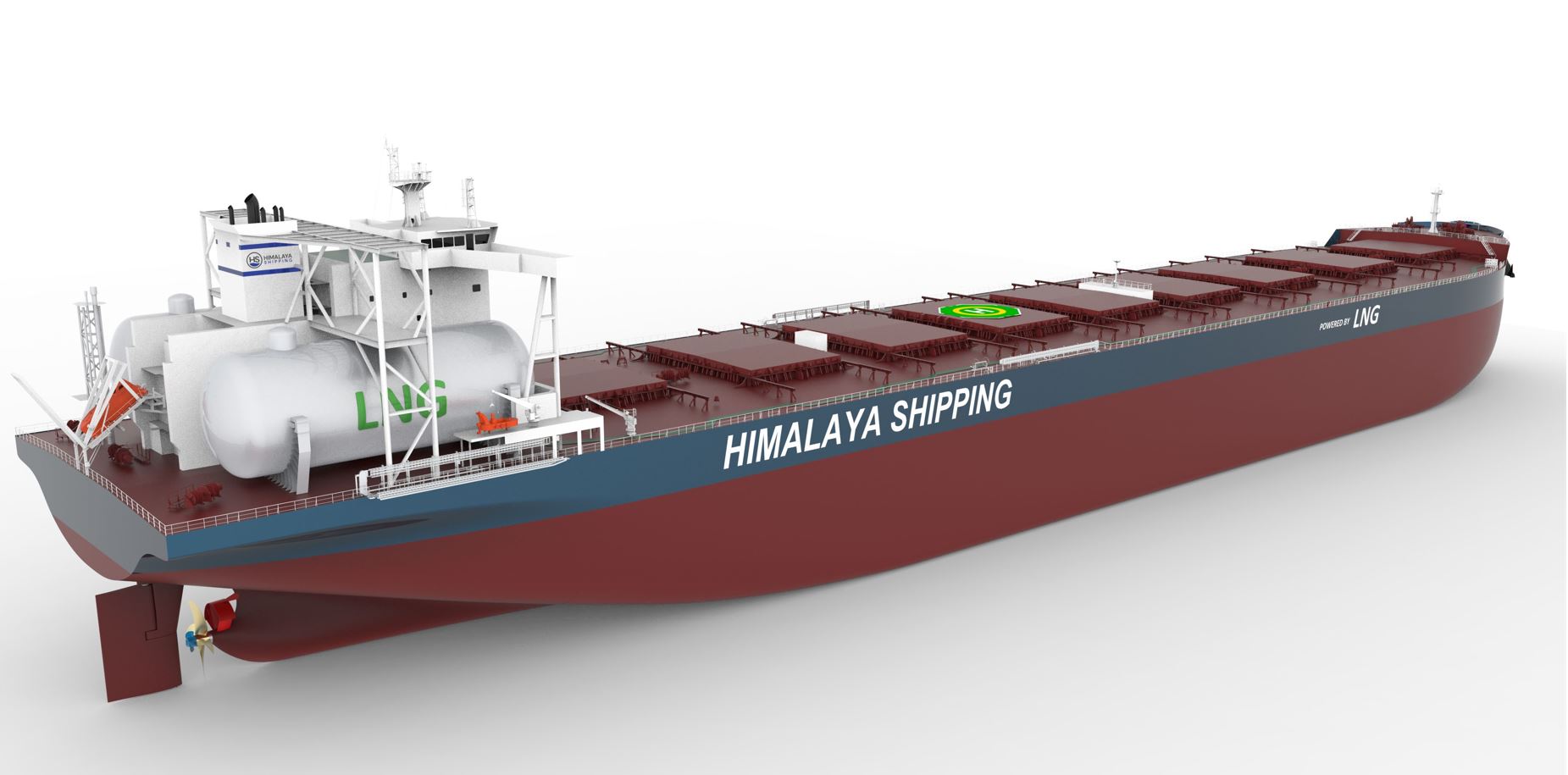Tor Olav Trøim’s Himalaya Shipping is still in talks to find work for its LNG-powered Newcastlemax bulk carriers currently under construction in China, while it also revealed plans to increase the size of the vessel’s tanks.
The firm, registered on Euronext NOTC, has newbuilding contracts for twelve 208,000-dwt LNG dual-fuel bulk carriers at New Times Shipbuilding in Jiangsu.
According to Himalaya’s quarterly report released this week, the vessels have a total price tag of about $830 million.
Himalaya plans to take delivery of the 300 meters long ships in the period spanning from March 2023 to September 2024.
Also, the firm said it would name the vessels Mount Kilimanjaro, Ita, Etna, Blanc, Matterhorn, Nebilna, Bandeira, Hua, Elbrus, Emal, Denali, and Aconcagua.
The sister ships will feature MAN ME-GI propulsion and two type C LNG tanks with a total capacity of about 7,500 cbm.
Himalaya said in the report it has decided to increase the size of the LSFO/MGO tanks to 4750 cbm, in order to offer maximum flexibility in trading of the ships.
The new tank design means the vessels can do a full round voyage Brazil-China, both on LSFO and LNG.
“This significantly increases the flexibility of the ships, and will make the company able to fully benefit from the lowest cost fuel,” it said.
Financing secured
In February 2022, the company entered into sale lease back arrangements for the first four LNG-powered newbuildings.
Pursuant to the lease financing, Himalaya said it would receive financing for the third and fourth pre-delivery instalments.
In addition, upon delivery of the relevant vessels from New Times Shipyard, SPVs owned and designated by the leasing company would buy the bulk carriers.
Himalaya said the vessels would be chartered back on seven-year bareboat charters which include purchase options during the respective charter periods.
Furthermore, the company said it has secured credit approval for sale leaseback financing with “a leasing company” for the next eight newbulidings.
This financing would cover the remaining newbuilding instalments on the last eight ships, it said.
“Several enquiries”
Himalaya aims to charter out its vessels to large dry bulk operators, commodity traders and end users.
“As of the date hereof, no charter arrangements have been entered into for our vessels,” the firm said.
However, the company has received “several enquiries” about charters of the vessels.
Himalaya expects to achieve “better pricing” on the charters closer to delivery of the vessels, driven by the new EEXI and CII rules which should enter into force in 2023.
The firm is targeting to generate “solid returns” on the equity injected, and return that capital through monthly dividends once it takes delivery of all of the ships.

